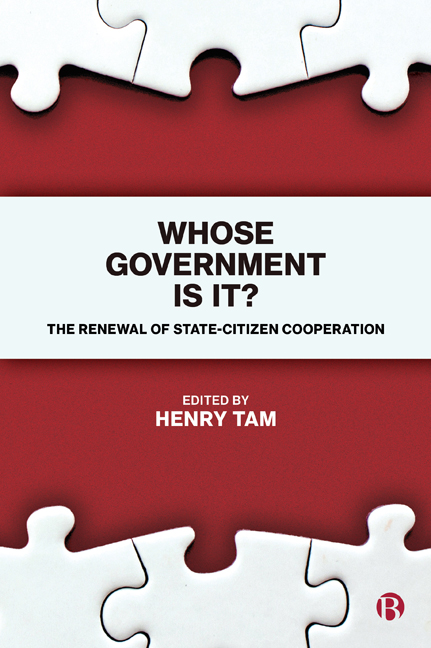9 - Old Age and Caring Democracy
Published online by Cambridge University Press: 27 April 2022
Summary
As I write this I am 65 years old. I am retired, but retain an honorary title reflecting seniority in academic life. I am in receipt of a state and occupational pension and pay income tax on the latter. My health is generally good and I live in a part of the country where as a woman I might expect to live another 22 years. If I need social care services, in the current system, I would have to pay for these. I have no children, my parents both died many years ago, but I do have other close family members who are intensive users of health and social care services. I voted Remain in the EU Referendum and have always voted Labour. I first encountered one of the other authors of Whose Government Is It?, David Blunkett, many years ago when I was a shop steward in Sheffield City Council and he was a local councillor.
My life as an older woman in these respects is very different from that of many others in old age. Difference and inequality over a life course impact on the experience of old age, and old age itself is a period of change over perhaps three decades. As at any other age, to assume that being old alone defines people's socioeconomic circumstances, including their identities as ‘economically active’ or not, their political views, their health status or personal circumstances, is both simplistic and unhelpful. Intersectionality reflects the lived reality not only of the way gender and ethnicity intersect, but also how differences such as age, disability, positioning in relation to care, constitute conflicting dimensions of advantage and disadvantage. But in spite of the differences between older people, existentially, politically and interpersonally, age does matter.
Age impacts on perspective – ‘looking forward’ to the future has different connotations at ages 20 and 70. While being old is not the same as being ill, health problems do increase for many people as they age. Age is important in the nature and significance of different interpersonal relationships. It affects how we are seen by others, not least whether we are valued or regarded as a burden. Unlike many dimensions of difference, to other older people is to other our future selves. We will, if we survive, all grow old.
- Type
- Chapter
- Information
- Whose Government Is It?The Renewal of State-Citizen Cooperation, pp. 143 - 158Publisher: Bristol University PressPrint publication year: 2019



